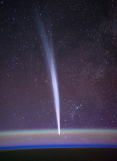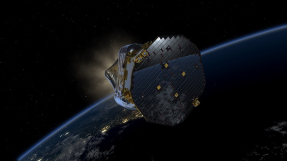More than a century after famous physicist Albert Einstein floated the idea of gravitational waves, scientists have finally proven that he was correct all these years.
In what is already being described by some as the most important discovery in the field of physics in recent years, the Laser Inferometer Gravitational-Wave Observatory (LIGO) proudly announced late last week that it has accomplished what it has set out to do: detect these ripples in time-space.
"We have detected gravitational waves. We did it," David Reitze, executive director of the LIGO, said at the National Press Club in Washington, as quoted by CNN.
The scientists said the gravitational waves they detected were a result of the merging of two massive black holes, or regions of space where gravitational force is so strong that no form of matter can escape them.
One of the black holes had the mass of 29 suns, while the other one had a mass the equivalent of 36 suns. Both are estimated to be 50 km (30 miles) in diameter.
According to the researchers, the merging of these black holes happened about 1.3 billion years ago at half the speed of light. The gravitational waves travelled that long before reaching the vicinity of our planet.
Because the gravitational waves are so small, the researchers had to use the LIGO, which is actually "a system of two identical detectors" located in Livingston, Louisiana, and the other in Hanford, Washington. These detectors were "carefully constructed to detect incredibly tiny vibrations from passing gravitational waves."
Deirdre Shoemaker, a Georgia Tech physicist who works on LIGO, compared the gravitational waves to a "chirp" lasting one-fifth of a second.
The scientists are confident that their findings on gravitational waves are conclusive, having exceeded the "five-sigma" standard of proof necessary in scientific research.
"What's really exciting is what comes next," Reitze said. "I think we're opening a window on the universe—a window of gravitational wave astronomy."















